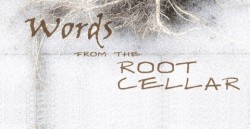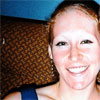 Where Have All the Good Books Gone?
Where Have All the Good Books Gone?
By Axie Barclay
This article, http://www.telegraph.co.uk/culture/books/booknews/11470185/Why-great-novels-dont-get-noticed-now.html, caught my notice recently. And it hit upon something I’ve been noticing for a while.
Now, I’m one of those people who have always like Big Books. I would even have been called bookish in my younger days, if those I’d been in contact with had understood the term. But Serious Books, the more serious the better, have always called to me. Of course, I’ve read more than my fair share of genre fiction as well, but a book has to reach a certain level of storytelling to really enthrall me, and most commercial, genre fiction just doesn’t have that appeal. I don’t think I’m elitist or snobby (although I very well might be and I’ll leave that to you to decide by the end of this article), but rather consider myself someone who will read absolutely anything if it’s well-told, has fun with language, and makes me fall so deep into it that it’s difficult to come back, or to tell someone about my day because the book world encompassed me so completely that it feels like it happened to me. For instance, Alison Tyler’s Dark, Secret Love series is an erotica series that I absolutely adore. Turn that around and Bleak House by Charles Dickens is equally dear to me. I feel like I know these people, that I’ve laid bent over and breathless, waiting to be struck, that I’ve spoken with Vida Winter from Diane’s Setterfield’s The Thirteenth Tale, lost my twin and grieved her, that I’ve been harried by Mr. Tulkinghorn and beat the dark streets of London. So it’s not genre snobbery that I’m guilty of, but rather word snobbery, idea snobbery. I like a story I can lose myself in completely, and commercial fiction doesn’t typically achieve that.
Back to the article.
I haven’t read the book in question, Dear Thief by Samantha Harvey, although I did read the excerpt on Amazon and was completely sucked in. When I get a little breathing room in my reading schedule, I plan to pick it up. It sounds like they did everything right, the launch, the marketing, making a big splash with all the right award lists, so why the difficulties in finding readers? The article discusses the problem in general with marketing serious fiction, that readers want “quick books,” not serious ones they have to sit down with and really think about. This worries me for many reasons, not only that the bookstore and print industry is suffering, but that serious-minded fiction is getting marginalized. Particularly worrisome to me is that if readers can’t find these books and therefore don’t read them, will authors keep writing them?
Some might argue that “literature” is only the interest of stuffy academics and reclusive English majors, but why then have we seen a resurgence of Jane Austen and Shakespeare? Why is there still so much to do every year around the long and short listed Man Booker Prize books? But if even these books are being marginalized by the algorithms, then what’s a would-be savvy reader to do?
Digital books are not going away. In fact, the revolution has barely begun by most estimations. I think the best thing a reader of non-commercial fiction can do is be discriminating, keep their standards high, and review the crap out of books they enjoy. After all, that’s the one way a reader can communicate directly with their favorite writers, telling them what they love about the work, help like-minded readers find their new favorite books, and best reward the efforts of the authors. And maybe someday it won’t be so hard to find books that we love and the literary fiction algorithms will catch up to us Discerning Readers of Serious Books.
Three Surprising Reads that You Probably Didn’t Realize were Literary Fiction
- Handle with Care by Jodi Picoult
- Trigger Warning by Neil Gaimon
- The Remains of the Day by Kazuo Ishiguro
(Okay, maybe that last one, but it’s still an amazing book.)
 Axie Barclay is a Michigan writer with a cow-habit. Having discovered the joys and potential for growth inalternative agriculture, she quests ever longer and harder for ways to combine farming and writing into a business. When not milking cows, making disgruntled noises at the latest disgusting thing the heeler dogs dredge up, riding horses, or keeping the fence up around her small beef herd, she’s holed up reading an eclectic array of books or tapping out pages. When not working, she enjoys kicking back with her honey, family, and friends at a bonfire with some beers. Chat her up on Twitter and Facebook, /axieb, or http://barclayfarmsandlit.blogspot.com where she delves into literature and agriculture with a relish…and occasionally ketchup. Soon to be homemade.
Axie Barclay is a Michigan writer with a cow-habit. Having discovered the joys and potential for growth inalternative agriculture, she quests ever longer and harder for ways to combine farming and writing into a business. When not milking cows, making disgruntled noises at the latest disgusting thing the heeler dogs dredge up, riding horses, or keeping the fence up around her small beef herd, she’s holed up reading an eclectic array of books or tapping out pages. When not working, she enjoys kicking back with her honey, family, and friends at a bonfire with some beers. Chat her up on Twitter and Facebook, /axieb, or http://barclayfarmsandlit.blogspot.com where she delves into literature and agriculture with a relish…and occasionally ketchup. Soon to be homemade.
